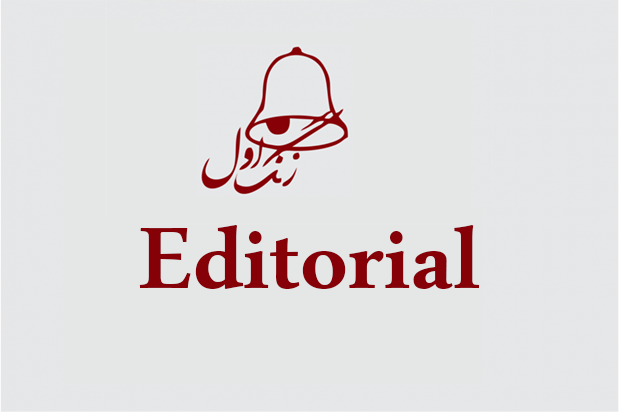Meetings were expected to begin after the Afghan government and Taliban negotiating teams in Doha were complete, but the second round has not yet begun. The Taliban are said to be reluctant to start the second round of talks. Several members of the government’s negotiating team have recently said that the Taliban are engaging in informal dialogue, which is a clear sign of their greed and disbelief in peace. On the other hand, unlike in previous years when the war subsided in the winter, the Taliban increased their violence this winter, and fighting continues in 20 provinces as of this week.
The leadership of the Taliban negotiating team arrived in Doha a week after the time scheduled for the return of the negotiating delegations. In the latest statement, the spokesperson for the government ministry for peace affairs said that the heads of both delegations had met on Monday evening to agree on the agenda. However, he stressed that the meeting was not successful because the government negotiating team proposed that a ceasefire and reduction of violence be at the top of the agenda.
Mohammad Amin Ahmadi also wrote on his Facebook page that the Taliban were seeking the release of their prisoners and were reluctant to discuss the ceasefire. He also said that the Taliban did not believe in a comprehensive peace and only wanted to fulfill their increasing demands.
The Taliban’s delays and excuses are proof that the group has yet to learn anything from history. Still, it is not too late for the Taliban to review Afghanistan’s contemporary history and, based on lessons learned from it, choose the right path in the current critical situation.
The people of Afghanistan know that if the government of Dr. Najib and the Mujahedeen groups had reached an agreement at the end of the democratic government of the time, Afghanistan would not have witnessed the tragedies that occurred in the early 1990s. It is equally well known that neither the provisions of the Geneva Peace Accords, which Pakistan promoted on behalf of the Mujahedeen with the Najib government, nor the policy of Dr. Najib’s national reconciliation nor the Benin Sivan peace plan was implemented. The result of the failure of these peace plans was the death of thousands of our compatriots, the migration of millions, and the destruction of all of the country’s meager infrastructure in the early 1990s.
Do the Taliban want to revisit those disasters on Afghanistan? The Taliban should know that the current government, with all its disadvantages, is very different from the government of Dr. Najib. Towards the end of Dr. Najib’s rule, all countries in the region called for the collapse of Kabul, but now there is no such consensus for the current government in our region. In contrast, three years before the complete collapse of Dr. Najib’s government, the Russians had left Afghanistan and their military aid had been greatly reduced. At the Geneva summit, donors extended aid to Afghanistan, and in the latest case, the NATO chief spoke of continuing to support the Afghan government, and the Americans pledged their support to the Afghan government under a strategic pact with Kabul.
Historical experience has shown that the uniform rule of the Taliban was not only dangerous for the region, but also for the farthest corners of the globe, which were not safe from the threat of terrorist forces taking refuge in Afghanistan at the time. The Taliban should know that the important countries of the world do not want their uniform power at all. All the world’s leading nations said at the Geneva Conference that preserving the achievements of the last nineteen years, especially the human rights achievements in the field of women’s rights, is their red line.
The question is, with what realism does the Taliban demand a monopoly of power? The Taliban should know that a country with 350,000 armed forces and the world’s support does not want to accept their terms at all. The people of Afghanistan have tasted peace in the shadow of new values and are not willing to simply give them up.
In light of all this the Taliban should be more realistic about the issue of peace. They must seize this opportunity to end the war and prevent some hostile countries in the region from achieving their goals. The Doha peace talks are a test for all political groups but most of all, the Taliban needs to learn from history and return to the negotiating table more realistically so it can play a role in ending the war and suffering of our people as far as they are concerned.












